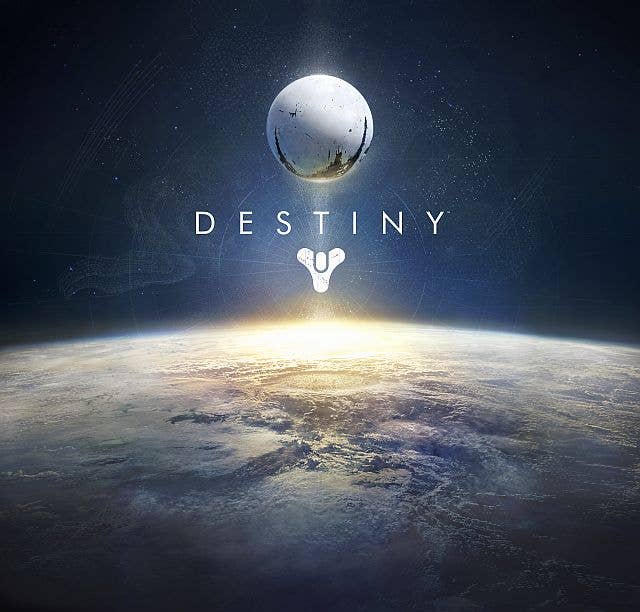Bungie's Destiny: "Absolutely no plans to charge a subscription fee"
Bungie's future rests on Destiny; we get a glimpse of what Activision calls the first "shared world shooter"
Bungie has begun unveiling Destiny, the grand game project that's been in the works for years. The future for Bungie, and a significant part of Activision's future, is depending on the success of this game. Bungie and Activision brought members of the press to Seattle to start revealing information about the game and to create some excitement and anticipation for Destiny. The process also raised many questions that have yet to be answered.
A full day of meetings were held for the assembled press, beginning in mid-morning and lasting until mid-afternoon. After a tour of Bungie's studio, Bungie COO Pete Parsons and several key Bungie employees discussed major aspects of Destiny. Activision Publishing CEO Eric Hirshberg joined them for a question-and-answer session. The most curious feature of this entire day was that no actual gameplay was shown; the closest we came was a few seconds of in-engine footage to demonstrate a feature of the new graphics engine.
What is Destiny? The next game from Bungie is "ambitious in its scope, innovative and creative in its approach, elevated in its tone, and is the kind of ass-kicking trek through the universe that only Bungie could create," said Hirshberg. "Very few games transcend their medium and their genre to truly become part of popular culture. We believe that Destiny could become one of those rare games."
"[This] is the kind of ass-kicking trek through the universe that only Bungie could create"
Eric Hirshberg
Destiny's more than just Halo on steroids, though. "As we saw Destiny coming together, we realized that it didn't belong to a genre that we could quite pin down," Hirshberg said. "It has elements of a first-person shooter, it has elements of an open-world sandbox, and it has elements of a persistent world, and brings them all together in a new way that seems very fresh. We realized that to refer to Destiny as any one of these pre-existing genres is almost to under-promise or undersell the experience we think it could bring to gamers. We realized that we needed to coin a new phrase and a new way to reference what this game is. I think what Bungie is creating with Destiny is the world's first shared world shooter."
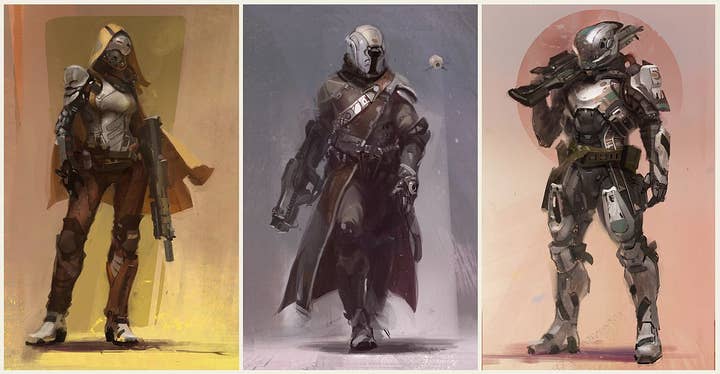
The game takes place in the future, on Earth and throughout the Solar System, in a style art director Christopher Barrett calls 'mythic science fiction.' Players will take on the role of a Guardian of Earth's last city, fighting against a variety of aliens amid the shattered remnants of an interplanetary empire. The settings revealed through concept art appear vast and awe-inspiring, evoking a sense of wonder and a desire to explore. Barrett noted that they have generated more concept art for this game than for all previous Bungie games put together.
Bungie co-founder and project director Jason Jones said that "we're doing something really ambitious, and I hope by the end you'll agree it's a little crazy." Jones started off with a simple declaration: "If you enjoy first-person shooters, Destiny's going to be the best first-person shooter you've ever played." Bungie is looking to create a much broader appeal, though, by including many more (unspecified) elements to the game that will have a broad appeal. Destiny will (somehow) let players of all skill levels have fun, so you won't need to be an FPS expert to jump in and have a good time. From all the deliberately vague descriptions of the gameplay, it seems like Bungie wants Destiny to appeal to a much broader audience than just Halo or Call of Duty players. "Absolutely," Bungie's Parsons agreed. He's a fan of World of Warcraft, and Skyrim, and other games, and he hopes that the range of experiences in Destiny will bring in many gamers who are not classic FPS players.
Bungie has had Destiny under development for several years, and in the process has thoroughly re-imagined and re-invented their ideas of what a game could be and should be, along with the technology necessary to make that happen. Jones noted that Destiny's design is built on seven pillars: A world players want to be in; a bunch of fun things to do; rewards players care about; a new experience every night; shared with other people; enjoyable by all skill levels; and enjoyable by the tired, impatient, and distracted.
"We're doing something really ambitious, and I hope by the end you'll agree it's a little crazy"
Jason Jones
Writer and design director Joe Staten said that 'we're all storytellers' and that Destiny was designed to bring that out in the players. Their vision is to tell stories that matter and endure, and the most important stories will be the ones told by players. This is a big change from the design concept of the Halo series, which was built around the story of Master Chief and not really around the player's character.
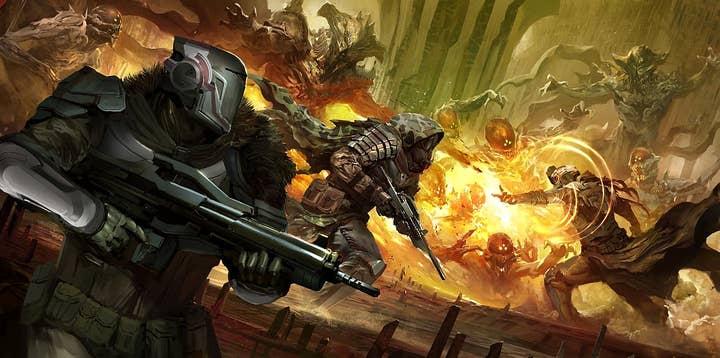
Engineering lead Chris Butcher discussed the ambitious scale of the game, which has required a huge amount of new technology. Bungie has spent the last six years rebuilding game technology, including such things as a multithreaded engine, a new graphics engine, an interactive world editor, distributed computing clusters, advanced AI and locomotion, a live update content pipeline, and global scale servers. Interestingly, the concept of a matchmaking lobby is disappearing into the background, as Bungie has created what it calls 'seamless, invisible technology' that is continuously matchmaking, transparent to the user; there's no UI.
Graphics architect Hao Chen described how Bungie had to build a new graphics engine because the world is so big; it had to be automated. The old way of lighting, Chen explained, required pre-rendering, which took enormous amounts of time and resource. Now it's all real-time, which enables things like a dynamic time of day. The result is some interesting emergent graphics that occur, surprising even Chen with how they look.
The music for Destiny is still under development, but audio director and composer Marty O'Donnell described how he wanted Destiny music to go to 'the next level,' to really enhance and reflect emotions. O'Donnell worked with long-time collaborator Mike Salvatore and a surprise contributor - none other than Paul McCartney. It turned out McCartney has been very interested in interactive music and heard about Bungie's project, and the result has been a world-class collaboration. O'Donnell played segments that were recorded with a 106-piece orchestra and chorale at the iconic Abbey Road studio. The classical score brought to mind some of the great movie composers, like John Williams, Jerry Goldsmith, and Bernard Herrmann.
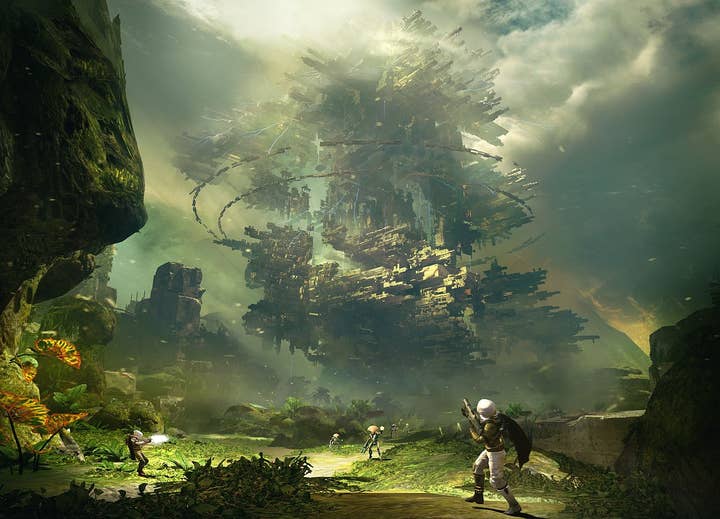
Parsons, Hirshberg, and Bungie president Harold Ryan then answered questions from the assembled press, but revealed few details of Destiny. There will be an Internet connection required, even to play solo, which could rub a few gamers the wrong way. There was no detail on release dates or pricing, but Hirshberg did say that the game is currently targeted at Xbox 360 and PS3; next-gen consoles were not a topic he could talk about. There will also be a mobile app that will have a significant impact on the game, the team said. Parsons emphasized that Bungie has a lot of great ideas and is not playing it safe.
Hirshberg did address one of the questions head-on, before it was even asked. "I've heard all the rumors, and let me just rip this bandaid off right here," Hirshberg said. "We have absolutely no plans to charge a subscription fee for Destiny."
"Let me just rip this bandaid off right here: We have absolutely no plans to charge a subscription fee for Destiny"
Eric Hirshberg
Destiny represents a grand re-imagining of the first-person shooter, expanded and modified so that it may appeal to a broader audience. Bungie's commitment is enormous; the entire staff of 360 is working on this game. Activision is also heavily committed, on a scale of hundreds of millions of dollars. More than that, Activision has (by their own count) four major brands, and if they want to grow substantially they need more such brands, "Activision's approach has been to try to do a few things exceptionally well," said Hirshberg. The dark side of that strategy is that when you don't do something exceptionally well, it can be devastating.
Activision has done its best to minimize the risks. It's chosen one of the best developers in the world with a stellar track record to head up the project, and given the team plenty of time and resources. Bungie has thrown itself headlong into the project, setting forth ambitious goals and leaving no assumption unexamined. Bungie's staff also noted that they are currently playing Destiny in-house and bringing in outside testers to give them feedback, which implies that the game is pretty far along and Bungie is well aware of the need for polishing the game. Many great game concepts have failed in the marketplace because of unbalanced play, numerous bugs, or just a lack of fun. Bungie knows very well indeed that a high level of polish is crucial to the game's success.
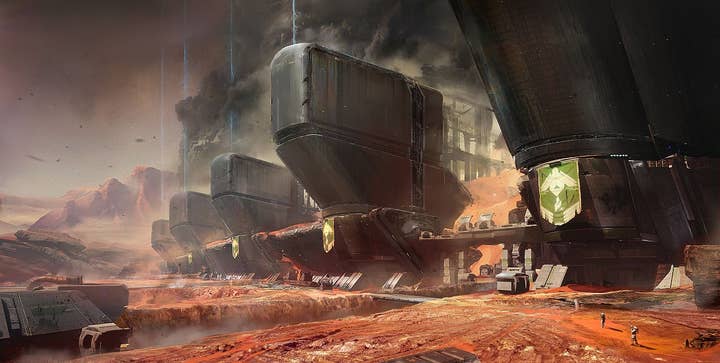
Perhaps the most common failure point for a big budget game is when a publisher pushes to ship the game by a certain date. That's when polish gets forgotten, important features are removed, and the brilliant design can become an unplayable mess. Activision seems to be avoiding this trap; in the company's forecast for 2013 it carefully noted that it did not include revenue from Bungie's project. At the same time, Bungie seems to be pretty far along with the game; the studio may well be able to ship it this year. If so, Activision gets a pleasant surprise boost to its revenue. If not, well, management can say "We told you not to expect it this year."
The biggest challenge to the ultimate success of Destiny may be something beyond the control of Bungie or Activision: the future of the console market. Will current-gen consoles continue to decline in sales, or will there be price cuts that may keep sales going? When next-gen consoles arrive, will they sell at the levels seen for the current generation, or will they struggle? Could Destiny be a game like Halo that can actually drive hardware sales and the overall market?
Some clues to Activision's thinking can be found in its contract with Bungie. The text of the Activision/Bungie contract was revealed in the course of Activision's lawsuit with Infinity Ward last year. The agreement (dated April 2010 - it may have been altered since then) spans a period of ten years, in which Bungie will develop content that Activision will publish. The first release was slated for the Fall of 2013 with major releases at every two years afterwards, and major DLC releases in the years between. The target platforms for the initial release are specified as Xbox 360 and its successor (labeled in the contract as "Xbox 720"), with a PS3 release for Fall 2014. A second Destiny Game would also be released on the "PS4" (the successor to the PS3) and the PC (under Windows).
"Activision's approach has been to try to do a few things exceptionally well"
Eric Hirshberg
We're likely to see the Xbox 360 and PS3 versions appear in relatively close order; this doesn't appear to be a problem these days for most developers. Should next-gen consoles launch this year, would Destiny be a release title? While nothing was said about this by either Bungie or Activision, it should be obvious that releasing Destiny as a launch title for a next-gen system would be a sure sales boost. If it can be done, it will be done. If the contract is still unchanged, don't expect Destiny to be exclusive to any platform. It's also interesting to note that a PC version is planned; that makes a lot of sense as yet another platform that should be good for a considerable audience. Everything we know about next-gen consoles indicates it will be far easier to port those titles to and from the PC.
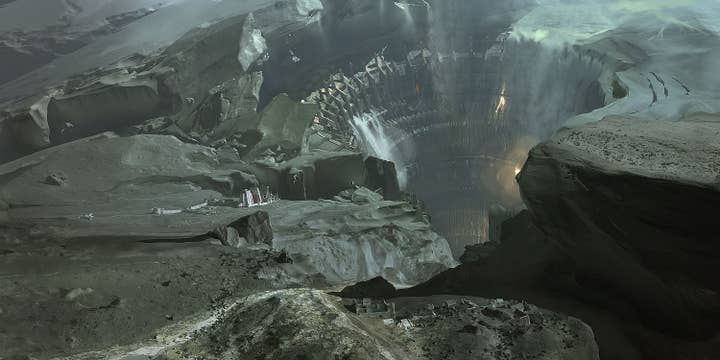
The Destiny press reveal was fascinating for a number of reasons. No gameplay was shown, and no ship date was given. Even if the game ships this fall, this is extremely early to be giving press conferences for a fall game. There are no press conferences planned any time soon for Call of Duty's fall release, or Grand Theft Auto V, or the next Madden or FIFA. Normally you wait until E3 to start the real buzz going on fall releases. Perhaps Activision merely wants to get out in front of the huge noise level that's going to be overwhelming the game market this year. New consoles, new mobile platforms, important new software releases - game media this year will be filled with sound and fury from every PR direction.
For now, we have to wait until Activision and Bungie decide to reveal more. When we can finally get our hands on the game, we'll be better able to see how Destiny might unfold. Check out the video below for more.
